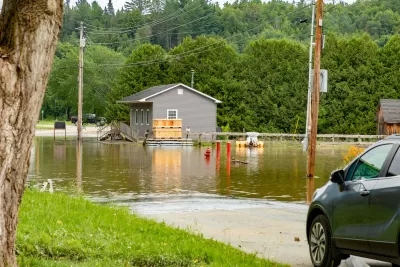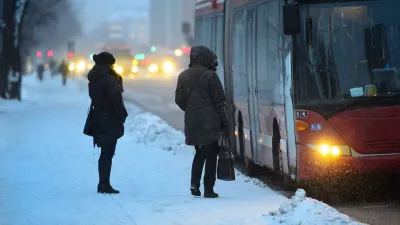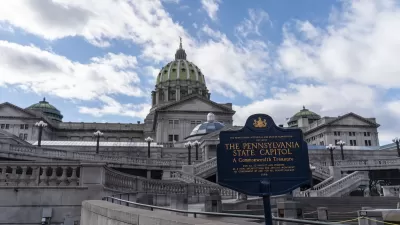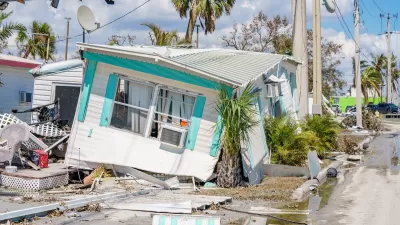Inspired by the EPA’s superfund cleanup program, the bill aims to hold companies responsible for contributing to climate change and its harmful impacts.

A new Vermont law modeled on the Environmental Protection Agency’s superfund program would require companies with high emissions to pay for climate-change-induced damages.
According to an article by Maura Barrett and Lucas Thompson for NBC News, “The amounts owed would be determined based on calculations of the degree to which climate change contributed to extreme weather in Vermont, and how much money those weather disasters cost the state. From there, companies’ shares of the total would depend on how many metric tons of carbon dioxide each released into the atmosphere from 1995 to 2024.”
Revenue would go toward “modernizing infrastructure, weatherproofing schools and public buildings, cleaning up from storms, and addressing the public health costs of climate change.”
If passed, the law is expected to face what could be a lengthy process of legal challenges. The American Petroleum Institute, one of the major lobbies for the interests of oil and natural gas companies, sent a letter to the state Senate opposing the bill, saying it “violates equal protection and due process rights by holding companies responsible for the actions of society at large.”
FULL STORY: Vermont passes bill to charge fossil fuel companies for damage from climate change

Alabama: Trump Terminates Settlements for Black Communities Harmed By Raw Sewage
Trump deemed the landmark civil rights agreement “illegal DEI and environmental justice policy.”

Planetizen Federal Action Tracker
A weekly monitor of how Trump’s orders and actions are impacting planners and planning in America.

Why Should We Subsidize Public Transportation?
Many public transit agencies face financial stress due to rising costs, declining fare revenue, and declining subsidies. Transit advocates must provide a strong business case for increasing public transit funding.

Understanding Road Diets
An explainer from Momentum highlights the advantages of reducing vehicle lanes in favor of more bike, transit, and pedestrian infrastructure.

New California Law Regulates Warehouse Pollution
A new law tightens building and emissions regulations for large distribution warehouses to mitigate air pollution and traffic in surrounding communities.

Phoenix Announces Opening Date for Light Rail Extension
The South Central extension will connect South Phoenix to downtown and other major hubs starting on June 7.
Urban Design for Planners 1: Software Tools
This six-course series explores essential urban design concepts using open source software and equips planners with the tools they need to participate fully in the urban design process.
Planning for Universal Design
Learn the tools for implementing Universal Design in planning regulations.
Caltrans
Smith Gee Studio
Institute for Housing and Urban Development Studies (IHS)
City of Grandview
Harvard GSD Executive Education
Toledo-Lucas County Plan Commissions
Salt Lake City
NYU Wagner Graduate School of Public Service





























